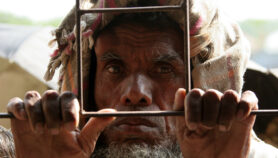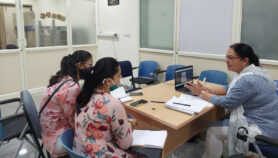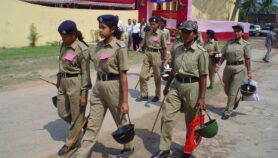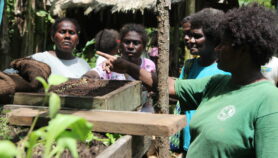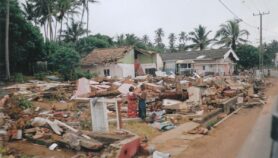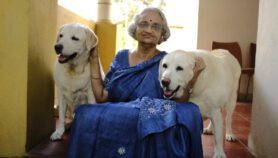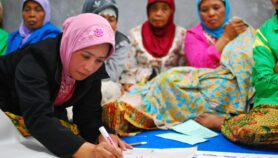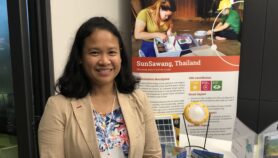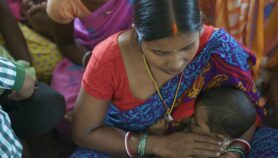15/03/23
Q&A: Afghan girls must ‘believe in themselves’
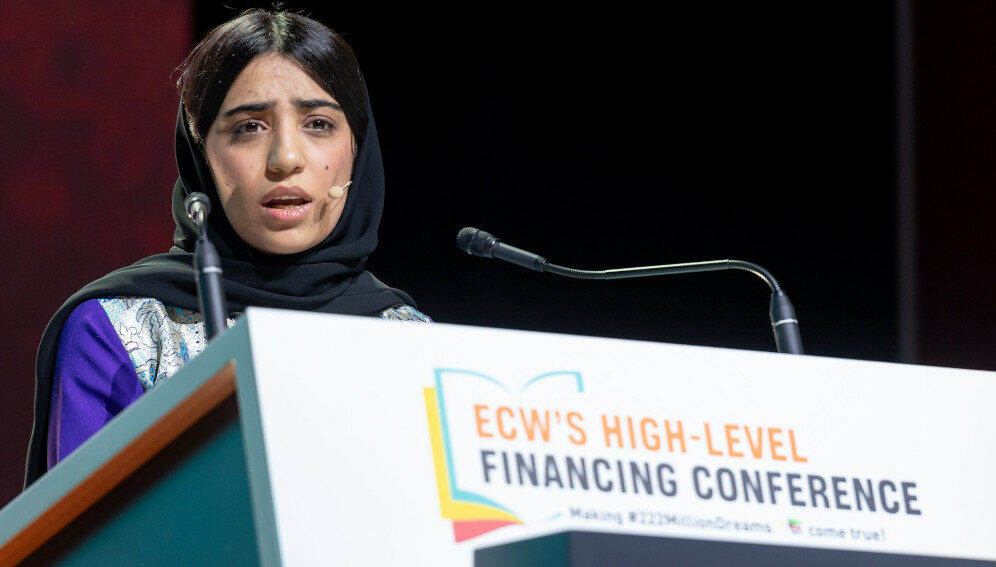
By: Melanie Sison
Send to a friend
The details you provide on this page will not be used to send unsolicited email, and will not be sold to a 3rd party. See privacy policy.
Afghan engineering student Somaya Faruqi tells girls in her country to pursue STEM against the odds.
When Afghanistan reported its first case of COVID-19 in 2020 in the city of Herat, a serious crisis was looming as the country of 39 million people just own 200 ventilators. When cases rapidly rose, the governor of Herat then opened a design challenge for building ventilators.
One group that prominently responded to the challenge were the Afghan Dreamers — an all-girls robotics team between the ages of 14 and 17 — led by Somaya Faruqi, then 17 years old. They improvised on a blueprint from the Massachusetts Institute of Technology and fabricated a prototype from old car parts which was presented to Afghan government agencies.
Minor adjustments were requested by the Ministry of Public Health before the prototype went into mass production. Following the presentation, the Ministry of Education pledged to incorporate science, technology, engineering and mathematics (STEM) into the national curriculum. Meanwhile, Nizar Ahmad Ghuryani, then the Minister of Industry of Commerce, donated US$10,000 to support the team. He also secured land where the ventilators could be mass-produced.
The future seemed bright for the Dreamers, whose membership had grown to over 250 girls from different parts of the country from an initial six. However, when the Taliban returned to power in Afghanistan restrictions were once again enforced on women, including prohibiting girls from attending secondary school. Faruqi and some of the Dreamers were able to flee Afghanistan, but most were left behind.
Now studying engineering in the US, Faruqi was recently named Global Champion of Education Cannot Wait, the UN fund that supports the education of children affected by crises. As a keynote speaker at the fund’s High-Level Financing Conference, she called on donors to invest in education which she described as a lifeline out of poverty.
Somaya Faruqi at the Education Cannot Wait High-Level Financing Conference. Video credit: Education Cannot Wait.
Faruqi spoke to SciDev.Net about serving as a mentor to her former team and continuing to be a dreamer in the face of extreme odds.
What got you interested in robotics?
As the oldest child in my family, I felt responsible to help my father, a car mechanic. I used to go to his car repair shop on Fridays and with my tiny hands fixed some parts of cars, for example, the rear view mirror or the door locks.
I was working with different machines as a six- or seven-year-old girl and it provided the perfect opportunity to join the Afghan robotics team in 2017. Actually, it was the first robotics team and we were all.
In our team, we built many different robots and they actually worked. I saw that it’s not just my brother or my uncle or male cousin that can do engineering. We six girls built things in Afghanistan that the boys never did.
We started our team in 2017. There were many girls that didn’t have their family’s permission to join our team. But I saw that after building some robots and after our team had achievements the families were more accommodating. Our team could change the minds of people in Afghanistan and about engineering.
What was it like to be the leader of Afghanistan’s all-girls robotics team?
For the first two years, I was a member of the team and I worked mostly in the mechanical section, but after that I became the captain of the team and I worked with my team on the ventilator. In 2017, I was then the youngest member of the team. The other five girls were in Grade 10 but I was in Grade 7.
At first it was hard to be the captain and manage everything, the girls, the teachers. But soon I got used to it and felt more responsible for the team. If there was anything the girls needed, I was there to help them — even after graduating from the team (members of the team graduate after Grade 12).
Are you still collaborating with the Dreamers?
Yes. Some of our team members are in Doha, working on different projects, competitions and exhibitions. And we have members in Afghanistan who have their classes online because of the situation there. I’m here always when they need help. Nine or ten of us are in Doha and two are here in the US.
The situation is really hard on girls in Afghanistan. They cannot step out of their homes. They cannot go to school or go to the city for their robotics classes. They cannot go to university, or even parks, gyms, restaurants, or work outside the home.
Whenever we talk during online classes or chat, it really breaks my heart. Two years back I was in Afghanistan like them and allowed to go to school. But now they can’t go to school or even attend robotics classes — robotics is not something that you can learn online. But that’s the only way right now though we are trying our best to provide them with as many online sources as we can.
I’m here and continuing my education and sometimes I feel guilty. Why do I have this opportunity that they do not have? But I think that I should use my opportunity to help them learn.
What was it like for you when you left Afghanistan?
I left Afghanistan in August 2021 and reached Doha with eight of my team members. It was almost impossible to get out because there were thousands of people on the street trying to enter the airport but the gates were locked. The Taliban were shooting from the streets and the army was shooting from inside the airport. There were dead bodies on the streets. Children were crying and calling out to missing parents, mothers crying because they had lost their children.
After three days we managed to enter the airport around midnight and get out of the country. I finished my high school in Doha, then I applied to a university and now I’m in the US studying mechanical engineering. My family came out of Afghanistan three months after me. I’m glad they are safe.
What’s next for the team?
As a team, we are working on an exhibition that we’re going to have in Doha. It’s a big exhibition where leaders will gather. I will go and help the girls and be in the exhibition with them.
Our long-term plan is going to be building the first STEAM school – science, technology, engineering, arts and math – in Afghanistan. We had started designing this school two years ago with help from Yale University. We got land in the University of Kabul campus. We had the donors, we had everything. We were going to start building but the Taliban took over and everything changed.
Our focus now is to have this STEAM school because we don’t have robotics. For sure I will go back to Afghanistan. I grew up there. All my memories are there, my friends, my family. Everything is there.
What would you say to young women who want to pursue a career in STEM but face adversities?
I want to tell them that to achieve your dreams, you have to believe in yourself. Because if you don’t, it will be impossible, even if you love doing something. Once your belief is killed, your dream is killed. If you believe in yourself, you will be unstoppable. You cannot remove the challenges but you can solve them.
*This article was updated on 16 March 2023 to include a video clip of Somaya Faruqi.
This piece was produced by SciDev.Net’s Asia & Pacific desk.






